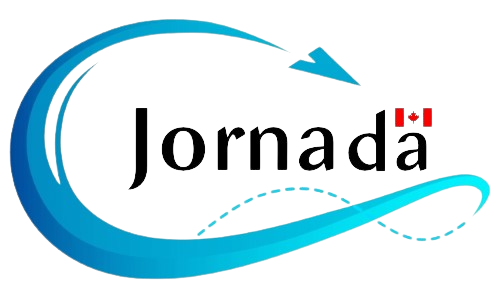
There are two types of work permit programs in Canada:
- Temporary Foreign Worker Program: A Labour Market Impact Assessment (LMIA) is required for a foreign national to obtain a work permit
- International Mobility Program: An LMIA is not required for a foreign national to obtain a work permit\
The purpose of the LMIA is for employers to demonstrate to the Canadian government that the hiring of foreign workers will not have a negative impact on Canada’s existing workforce. The federal department of Employment and Social Development Canada (ESDC) wants to ensure that the hiring of foreign workers will not displace existing workers in Canada nor place downward pressure on their wages.
Different types of work permits
LMIA Required
By default, a Labor Impact Assessment (LMIA) is required when hiring a foreign worker.
CUSMA
Some citizens of USA and Mexico can be exempt from LMIA under the Canada-United-States-Mexico Agreement.
Intra-Company Transfers
In some cases this program allows a company to bring certain employees to Canada from its offices abroad without an LMIA.
Business Visitors
In many cases, business visitors may work in Canada without a work permit, so long as they meet certain conditions and don’t enter the Canadian labour market.
Post-Graduation Work Permits
After graduating from a Designated Learning Institution, international students in Canada may work for up to three years without the need of LMIA.
How we can help you
If you have a job offer from a Canadian employer and are unsure of what to do next. Contact us and we will help you apply for a work permit and help the employer with the LMIA application if needed.
There are special programs for the citizens of Mexico and USA that makes it easier for them to obtain a work permit. Contact us and we will help you make the process as smooth as it can be.
If you are a Canadian employer who is looking to hire a worker from abroad, we would be happy to advise you on the proper steps to bring that worker to Canada. Our Work Permit specialists will discuss your business needs with you, the qualifications of the worker that you have in mind, and the options that you have for getting that worker to Canada. Depending on your needs, you may need to apply for a Labour Market Impact Assessment. Alternatively, there may be specific programs that are geared toward addressing your needs on an expedited basis through an exemption, such as through an intra-company transfer. To see what options are available to you, contact us today and let us know about your business needs.
There are a few programs for entrepreneurs to come live or work in Canada:
- Start-up Visa
- Entrepreneur work permit
- Self-employed visa
And many more, please contact us to discuss your options.
Depending on the amount of time that you have studied in Canada, you may be eligible for a Post-graduation Work Permit (PGWP). This work permit is an excellent opportunity for you to develop Canadian experience, especially if you are looking to apply for Canadian immigration under Express Entry, the Provincial Nominee Program, or through Quebec. Reach out to us for PGWP assistance.
Canada’s diverse and thriving economy attracts individuals from around the world seeking employment opportunities. Whether you’re a skilled professional, a student looking for work experience, or a temporary worker, understanding the various work permits available and their application processes is crucial. In this article, we’ll explore different types of work permits in Canada and the steps to secure them.
1. Work Permits for Skilled Workers:
Overview: Canada’s Temporary Foreign Worker Program (TFWP) and the International Mobility Program (IMP) cater to skilled workers with job offers from Canadian employers.
Application Process:
- Job Offer:
- Secure a job offer from a Canadian employer.
- Labor Market Impact Assessment (LMIA):
- In most cases, the employer needs to obtain a positive LMIA, demonstrating the need to hire a foreign worker.
- Work Permit Application:
- Once the employer receives a positive LMIA, the worker can apply for a work permit.
2. Post-Graduation Work Permit (PGWP):
Overview: Designed for international students who have completed a program of study at a designated Canadian institution, the PGWP allows graduates to gain valuable work experience.
Application Process:
- Study in Canada:
- Complete a program of study at a designated learning institution.
- Graduation:
- Graduate and receive a transcript and an official letter confirming program completion.
- Apply for PGWP:
- Apply for the PGWP within 180 days of receiving the completion documents.
3. Working Holiday Work Permit:
Overview: The Working Holiday Program allows young individuals from partner countries to work and travel in Canada for a specified period.
Application Process:
- Eligibility:
- Check eligibility based on the country-specific requirements.
- Apply Online:
- Submit an online application during the designated application period.
- Notification of Acceptance:
- If accepted, receive a letter of introduction and work permit.
4. Intra-Company Transfers:
Overview: The Intra-Company Transfer Program facilitates the transfer of key employees within a multinational company to a Canadian branch.
Application Process:
- Qualifications:
- Ensure that the employee meets the eligibility criteria.
- Employer’s Role:
- The Canadian employer must provide details of the intra-company transfer.
- Work Permit Application:
- The employee can apply for a work permit after the employer receives approval.
5. Open Work Permits:
Overview: Open work permits are not job-specific and allow individuals to work for any Canadian employer.
Application Process:
- Eligibility:
- Check eligibility criteria, which may vary based on the specific open work permit category.
- Application Submission:
- Submit the application online or by mail.
Conclusion: Navigating the Canadian Work Permit Landscape
Understanding the different work permits available in Canada empowers individuals to choose the right path for their career goals. Whether you’re a skilled professional, recent graduate, or someone seeking a working holiday experience, each work permit has specific eligibility criteria and application processes.
Before embarking on the application journey, it’s advisable to research thoroughly and, if needed, seek guidance from immigration professionals. As Canada continues to welcome talent from across the globe, the possibilities for meaningful work experiences are vast. By following the right steps and meeting the necessary requirements, you can open the door to a fulfilling career in the Great White North.
